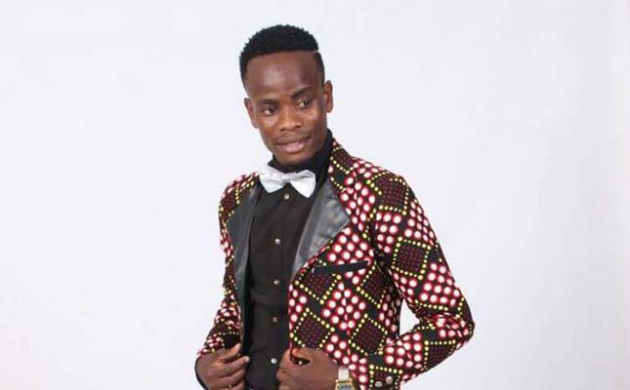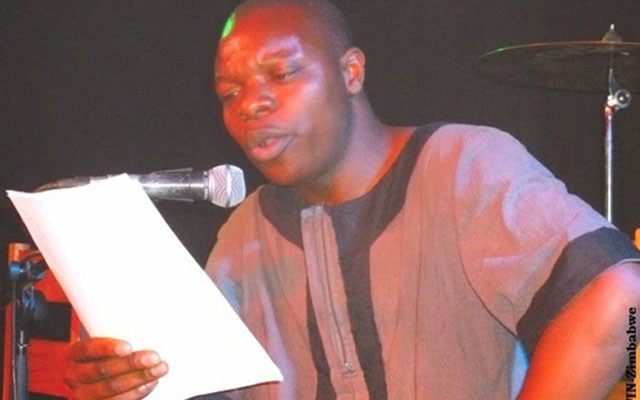Experience Muchuri’s deep Shona


“. . . Muchuri is that kind of writer who, when he decides to use Shona, wants to attain the highest level of perfection . . .”
Tanaka Chidora Literature Today
Having grown up in the era of the salad brigade when speaking in English with an affected American accent was the in-thing, I found myself resorting to English in many of my conversations. At one point, I relocated to a new neighbourhood and my neighbours, understandably, even assumed that I was a returnee from some European country where I had spent the bulk of my youthful life.
How wrong they were!
Even as I breezed through university, I found myself resorting to English, ostensibly for depth. What strikes me as odd now is how even as we propounded philosophies of moving the centre and being Afro-centred, we found ourselves seeking depth in the English language.
We moved the centre alright, while clutching at strands of English that still connected us to the old centre!
It was Sabhuku Vharazipi who made me experience that Damascene epiphany.
Shona can still carry the weight of my experience! Vharazipi made me reconnect with my village, with my unpretentious neighbours, and with Mudhara Matanya whose Shona sounds like a divine ritual. When he speaks, Mudhara Matanya makes you think he is picking his words from a very deep ancestral resource centre! Every encounter we have when I go to the village inevitably goes like this, “Ko ndirikuresvo kuvona here? Hausatiuri Tanaka here iwe muzukuru waVaMahuni? Wabveyo Harare? Wasiya vamwe vachibwaira?”
Vharazipi made me read Mabasa’s Imbwa Yemunhu; Charles Mungoshi’s Kunyarara Hakusi Kutaura and Memory Chirere’s Bhuku Risina Basa. I even embarked on a search for His Excellency, Cde Emmerson Mnangagwa’s Shona speeches just to experience the sweetness of the language in action.
During the “Tiri Parwendo” era, I loved those scenes in which Lexta Mutasa unleashed a couple of very deep Shona words like, “Ndinokushagada!”
These days, I am an Abel Mauchi fan. “Kugwara Kwangu Mai Mwana”; “Judy”; “Nyama”; “Magamba Akawandira Mumigwagwa” and many other poems in Shona are constant reminders of how possible it is to capture experience using African languages.
It was when I read Tinashe Muchuri’s “Chibarabada” that my conviction that one can completely capture experience in Shona became complete. “Chibarabada” is a complete package.
Unlikely metaphors, hybrid words, the stream of consciousness and a host of other post-modernist techniques of writing converge in this Shona novel to produce something that is very unexpected.
Tinashe Muchuri is that kind of writer who, when he decides to use Shona, wants to attain the highest level of perfection. Recently, in his foreword to Lazarus Sauti’s “Nei”, Muchuri demonstrates his dexterous use of Shona to communicate experience. He writes, “Upenyu hwemunhu huzere mibvunzo, vamwe vanosarudza kuzorora vachirova nayo isina kubvunzwa. Vamwevo ndivo vanoita toyitoyi mumigwagwa vachiimba nekufora vachiratidzira mibvunzo yavo kuti iwane mhinduro, asi Sauti anoti iye yake inobuda nemunduri nemunyaya.”
When he gave me a signed copy of “Chibarabada”, Muchuri wrote, “Kwauri T. Chidora, usayeredzwa naMukuvisi, dzika naChiredzi uone kunaka kwayo nyika.”
At first I thought he wanted me to literally adventure down the Chiredzi River and witness the beauty of its flow. But I was to realise, later, that “Chibarabada” is a river on its own. Shona words combine in this novel and flow, sometimes stealthily, sometimes tempestuously, towards that deepest level of meaning that a writer of Muchuri’s calibre hides in words.
I asked Muchuri what ‘chibarabada’ means. He told me it’s a village brew. The ingredients are mixed in secret. The drink is brewed in secret. But its effects are there for all to see. After drinking it, you look like you have been conversing with ancestors. That’s how strong the drink is.
That’s how “Chibarabada” is. It leaves you dazed. It leaves you fulfilled. It leaves you happy. It leaves you amazed. It leaves you experiencing a lot of things. But it also makes you ask, ‘How did Muchuri achieve all of this using Shona?’
Chibarabada communicates very deep philosophies that I thought could only be communicated in English. Chibarabada is a story of Sisyphus, of purposelessness, of absurdity, of going round in circles while looking for elusive answers; Chibarabada is Beckett’s Waiting for Godot — you know you are waiting for something, but you do not know what you are waiting for. “Chibarabada” is “Imbwa Yemunhu” because of the haunting presence of drunkenness. “Chibarabada” is “The Beautyful Ones are not yet Born” because of the inordinate presence of filth — filthy riches and filthy existences.
“Chibarabada” is “Waiting for the Rain” because the narrator says, “Murimi chaiye anomirira mvura. Kana ateya kuti zvarinopisa kudai, ikanaya Svondo rino ndeyangu, asi ikanaya svondo rinouya inenge isisiri yangu nekutimbe sadza ngudzinenge dzinenge dzaoma. Kana neniwo, ikanonoka kunaya mvura yemazikore aya, Freedom, haichinei hayo neni. Inenge youyira vamwevo havo. Ikasanaya chete izvezvi, nhasi uno, kwandiri zvapera. Zvatovawo zvaananhingi.”
“Chibarabada” is poetry. “Chibarabada” is a metaphor. Even the names of the characters are metaphors:
Freedom aripi?
Tinoda Freedom
Where is our Freedom?
Give us our Freedom, today.
One is reminded of Born free in Bulawayo’s “We Need New Names”; or Freedom who is buried under the wreckage of what used to be a house.
“Chibarabada” takes the Shona novel to that level one encounters in “Kunyarara Hakusi Kutaura”? (by Charles Mungoshi); and “Imbwa Yemunhu” and “Mapenzi” by Ignatius Mabasa.
It takes it to the level of experimentation. Muchuri experiments with form, with various narrative styles and the stream of consciousness. This gives the novel a level of unpredictability that agrees with the spirit of post-modernist writing.
To accomplish this in Shona demonstrates the unlimited potential of Shona to communicate experience even in ways that we might have erroneously thought were a domain of English or other foreign languages that we used to hero-worship. Maybe Ngugi was right after all in his argument concerning language!
Chibarabada’s one weakness is its inability to give the child narrator a child’s voice.
The Shona language in this novel sounds so grown-up, like the kind I associate with Mudhara Matanya. Also, the language is not your everyday Shona.
It’s deep. It’s so deep that it makes for a very dense read. But then, many novels in which the writer spends more time in the inscapes of the characters are like that.
If you haven’t read “Chibarabada”, you need to find a copy and travel with Muchuri along the Chiredzi River.







Comments